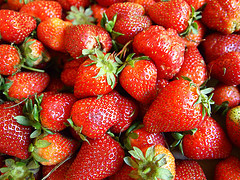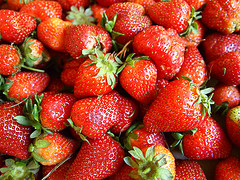
The continued usage of Methyl bromide, a banned pesticide, by the Australian Strawberry farms is increasing health concerns in the country.
As per the Montreal Protocol of United Nations in 1989, Methyl Bromide is banned as it depletes the Ozone layer. Yet, around 70 per cent of strawberry farms continue to use the pesticide. Though Australia agreed to phase it out by 2005, it is still widely used to a record of 30 tonnes a year by around nine strawberry runner growers at Toolangi, in Victoria's Yarra Valley. The valley generates around 100 million strawberry runners annually, which in turn generate about 70 per cent of Australian strawberries.
The companies continue to apply to the UN for a critical use exemption, claiming the alternatives are financially crippling. The co-chair of the UN Methyl Bromide Technical Options committee, Dr Ian Porter said, "Internationally, we've gotten rid of 85 per cent of methyl bromide, and it's a great win for mankind — in fact it's the best environmental gain that's been made”.
The strawberry growers said if they were forced to stop using methyl bromide, the viability of the $400 million strawberry industry would be "compromised" and 15,000 jobs jeopardized.
The runner industry meanwhile has invested more than $700,000 on research and development to find alternatives to methyl bromide. The Victorian and federal governments make financial contributions to the industry's research programs.
The nine farms still using the chemical have noted that banning the pesticide would threaten the Australian Strawberry industry. The ripple effects of using costlier alternatives will reach the supermarkets as well who would resort to importing the fruit than getting it from the farms growing it locally. The financial cost of using alternative pesticide will be passed on to the customers with each package costing around $10 more.
As per the Montreal Protocol of United Nations in 1989, Methyl Bromide is banned as it depletes the Ozone layer. Yet, around 70 per cent of strawberry farms continue to use the pesticide. Though Australia agreed to phase it out by 2005, it is still widely used to a record of 30 tonnes a year by around nine strawberry runner growers at Toolangi, in Victoria's Yarra Valley. The valley generates around 100 million strawberry runners annually, which in turn generate about 70 per cent of Australian strawberries.
The companies continue to apply to the UN for a critical use exemption, claiming the alternatives are financially crippling. The co-chair of the UN Methyl Bromide Technical Options committee, Dr Ian Porter said, "Internationally, we've gotten rid of 85 per cent of methyl bromide, and it's a great win for mankind — in fact it's the best environmental gain that's been made”.
The strawberry growers said if they were forced to stop using methyl bromide, the viability of the $400 million strawberry industry would be "compromised" and 15,000 jobs jeopardized.
The runner industry meanwhile has invested more than $700,000 on research and development to find alternatives to methyl bromide. The Victorian and federal governments make financial contributions to the industry's research programs.
The nine farms still using the chemical have noted that banning the pesticide would threaten the Australian Strawberry industry. The ripple effects of using costlier alternatives will reach the supermarkets as well who would resort to importing the fruit than getting it from the farms growing it locally. The financial cost of using alternative pesticide will be passed on to the customers with each package costing around $10 more.





